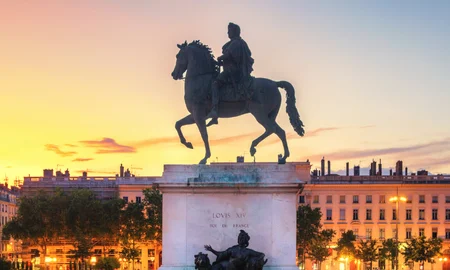
We'll be more than happy to whip up a quick FAQ for traveling to that enchanting land of cheese and romance. Here’s a handy list you can share with clients interested in jetting off to France:
What is the best time to visit France?
France is stunning year-round! For mild weather and fewer crowds, consider visiting during the spring (April to June) or fall (September to November).
Do I need a visa to travel to France?
Visitors from the US and many other countries do not need a visa for stays of up to 90 days within the Schengen Area. Always check the latest entry requirements before traveling.
What language is spoken in France?
French is the official language. While you can often get by with English in tourist areas, a few French phrases will certainly endear you to the locals.
What are some cultural customs to be aware of?
Politeness is key in France. Always greet people with "Bonjour" when entering shops or restaurants and say "Au revoir" when leaving.
In dining settings, it's customary to keep both hands on the table (though not your elbows).
How is the public transportation in France?
France boasts an extensive network of trains and buses. The high-speed train (TGV) is perfect for intercity travel.
Is it necessary to rent a car?
Renting a car is great for exploring the countryside and small towns, but in big cities like Paris, public transport and walking are much more convenient.
What is the currency in France?
The currency is the Euro (€).
Are credit cards widely accepted in France?
Yes, credit cards are commonly used in France, but it's a good idea to have some cash on hand for smaller establishments, markets, and tips.
What are some must-try foods in France?
Oh la la! Don't miss out on trying escargot, coq au vin, croissants, baguettes, and a variety of cheeses and wines.
How does tipping work?
Service charge is usually included in the bill in France. However, leaving a small tip for good service is appreciated.
Is France safe for tourists?
Yes, France is generally safe, but like any destination, it's wise to stay alert and keep an eye on your belongings, especially in crowded areas.
What types of accommodations are available in France?
Options range from luxury hotels and charming bed and breakfasts to vacation rentals and budget hostels. France has accommodations to suit every taste and budget.
How does the star rating system work for hotels in France?
The star rating system is government-regulated and ranges from 1 to 5 stars, reflecting factors like room size, amenities, and services.
What is the best way to get around in Paris?
The Métro is fast and efficient, and biking is also popular with the city’s public bike-sharing system, Vélib.
Will my cell phone work in France?
It's possible to use your phone in France. Check with your provider regarding international roaming plans, or consider purchasing a local SIM card for your stay.
Is Wi-Fi readily available?
Yes, Wi-Fi is commonly available in hotels, cafes, and public areas, though speeds can vary.
Is it necessary to make restaurant reservations?
Reservations are advisable, especially for popular dining spots and fine-dining restaurants. It's a great way to secure your table.
Are vegetarian or vegan options available?
Vegetarian and vegan options are increasingly available, particularly in larger cities. Always inform the server of your dietary needs.
Are there any local festivals or events to experience?
From Bastille Day parades on July 14th to the Cannes Film Festival in May, there's always something happening in France to enjoy.
What is the etiquette for shopping in France?
It's customary to greet the shopkeeper upon entering and leaving. Bargaining is not common in fixed-price shops.
This comprehensive guide should arm your clients with everything they need for a seamless French adventure! And remember, if you or your clients have specific questions or need tailor-made itineraries, I’m just a chat away to help make those travel dreams a reality.






